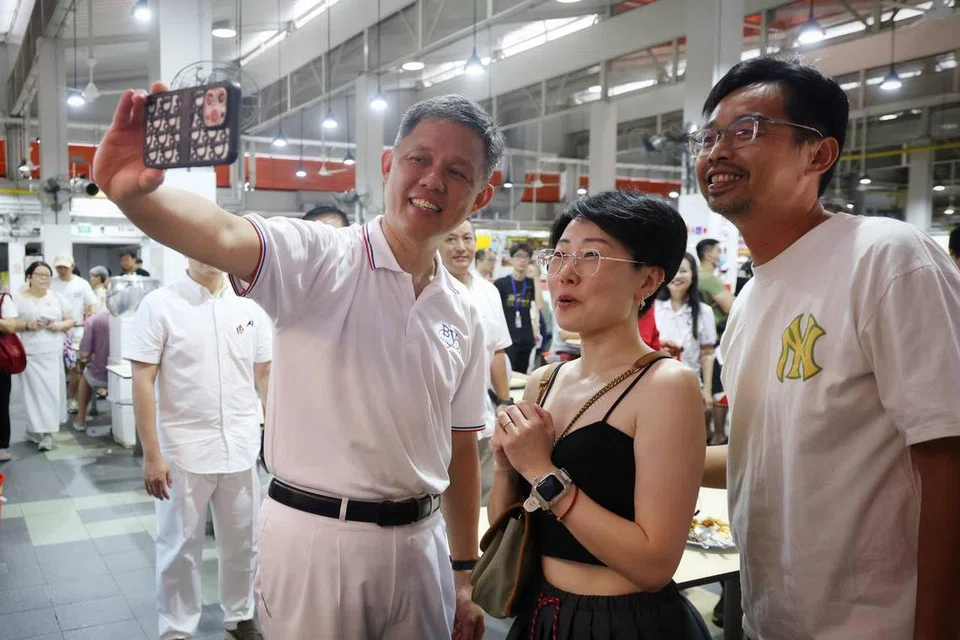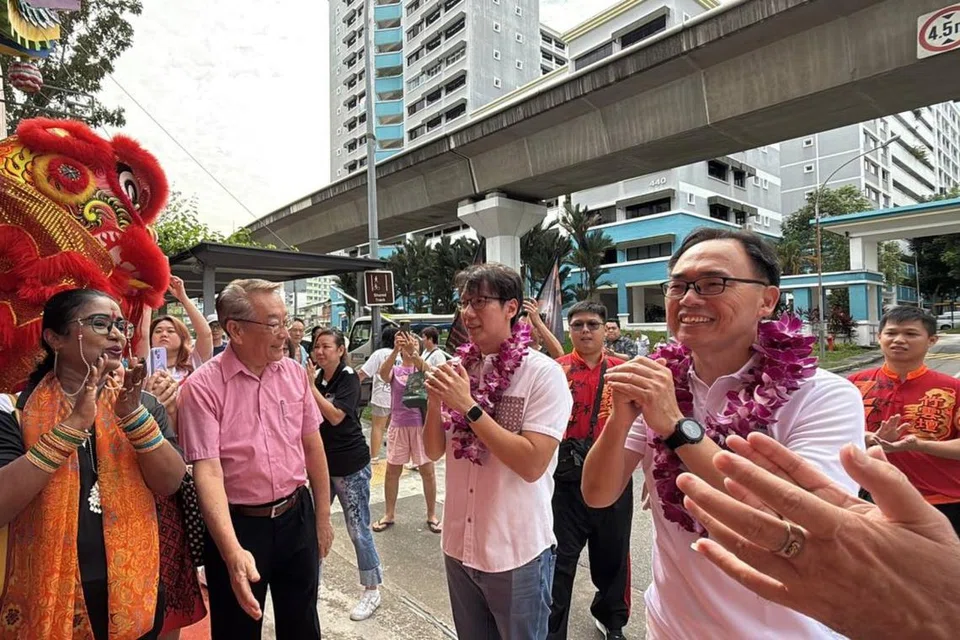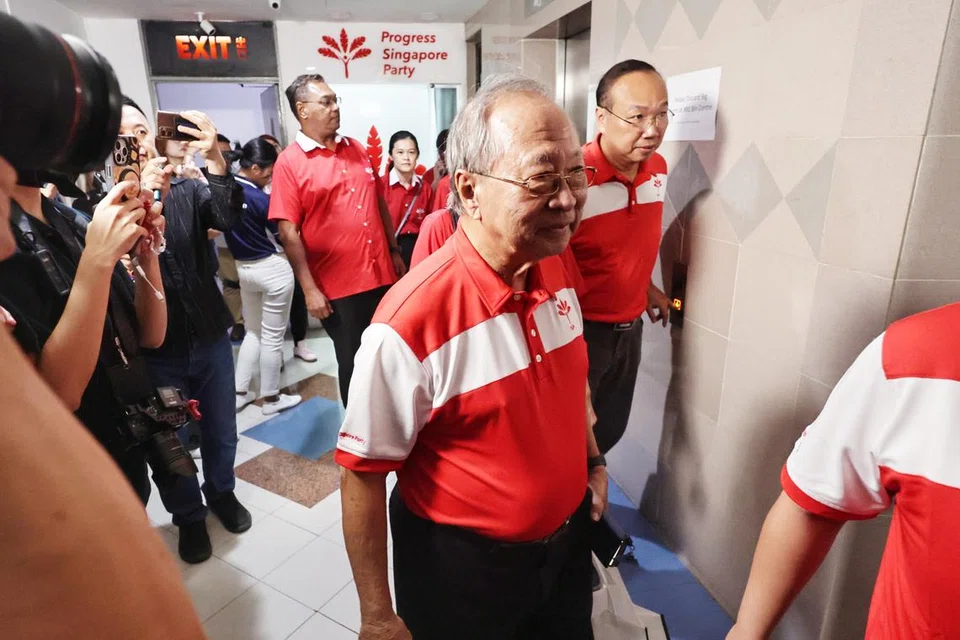- Joined
- Jul 25, 2008
- Messages
- 15,377
- Points
- 113
GE2025: Results signal voters’ trust in PAP to steer Singapore through uncertainty, say analysts

The PAP’s landslide victory of 65.57 per cent of the vote share, which won it 87 of 97 seats, was an overall flight to safety.ST PHOTO: LIM YAOHUI
Anjali Raguraman and Vanessa Paige Chelvan
May 04, 2025
SINGAPORE - The PAP’s resounding victory at the 2025 General Election reflects voters’ trust in the ability of Prime Minister Lawrence Wong and his party to steer the country through the brewing global turmoil, political analysts said.
The PAP’s landslide victory, in which it won 87 of 97 seats, or 65.57 per cent of the vote share, was an overall flight to safety informed by the Government’s track record over the past five years, including its handling of the Covid-19 crisis, analysts added.
“It is a critical GE because the PAP is (in the midst of) a leadership change, and the voters have shown they support the new PM and the 4G PAP team to be the government to steer us into the future,” said former PAP MP Inderjit Singh.
The results also showed that even as voters become more receptive to political pluralism, some opposition parties are struggling to stay relevant to voters, experts said.
The WP has solidified its standing as the dominant opposition party in Singapore.
In addition to retaining its 10 seats in Aljunied and Sengkang GRCs and Hougang SMC, the WP will get both Non-Constituency MP seats, as the “best losers” this general election in Tampines GRC and Jalan Kayu SMC.
Meanwhile, the Singapore Democratic Party (SDP) has outpaced the PSP’s performance, while smaller parties faced a “wipeout”, losing by such large margins that some candidates are set to lose their deposits.
With two parties in Parliament, this shows that “Singapore is settling into a ‘one-and-a-half party’ system”, said Institute of Policy Studies (IPS) senior research fellow Gillian Koh.
“This has been an excellent first outing for Mr Lawrence Wong as the new secretary-general of the PAP and incumbent prime minister,” said Dr Koh, who pointed out that PM Wong’s predecessors had “more challenging” maiden campaigns.
For instance, Mr Goh Chok Tong saw his party concede four seats to the opposition in his first campaign in 1991, while Mr Lee Hsien Loong saw an 8.7 percentage point dip for the PAP in 2006.
This election, the PAP also saw historically high vote share margins in certain areas.
Three constituencies were secured with margins over 80 per cent: Tanjong Pagar GRC (81.03 per cent), Queenstown SMC (81.12 per cent) and Jurong Central SMC (80.51 per cent).
The results point to Singaporean voters’ need for stability and security at a time when the “global order that Singapore has thrived under is being upended”, said Associate Professor Eugene Tan, a political analyst and law don at the Singapore Management University.
IPS Social Lab research fellow Teo Kay Key, agreed, saying: “Worries about cost of living and global uncertainty likely led to voters wanting to ensure that the ministers who are in charge of these task forces and relevant ministries continue to work for Singapore in these capacities, thus voting in that direction, overwhelmingly in some cases.”
But other external factors may also have contributed to voters’ perception of the PAP as being a safe choice, noted Professor Terence Ho, adjunct associate professor in practice at the NUS Lee Kuan Yew School of Public Policy.
He cited the Government’s handling of the Covid-19 pandemic, PAP MPs’ work on the ground in the past five years, as well as the national vision communicated by PM Wong’s 4G leadership team through the Forward Singapore exercise as factors that worked in the incumbent’s favour.
The PAP also ran a disciplined campaign, said Prof Tan. “They were not unduly defensive and also kept their focus on their key campaign messages.”
Strategically, the PAP also made some good moves, such as fielding DPM Gan Kim Yong in the newly-formed Punggol GRC, said Mr Singh.
This was despite several swaps of anchor ministers, IPS’ Dr Koh noted, pointing to DPM Gan’s eleventh-hour move to Punggol GRC. Manpower Minister Tan See Leng was moved to Chua Chu Kang GRC to take on DPM Gan’s post.
In Punggol, the PAP team led by DPM Gan eventually beat a team of first-time candidates from the Workers’ Party, taking 55.17 per cent of the vote.
“It was a great strategy, as voters feared losing an important team member for PM Wong, and swing voters came back to the PAP. I expected a narrow win for PAP and that happened,” said Mr Singh.
He said that the ruling party learned from its previous mistake – Sengkang GRC in GE2020 – where it “fielded a weak team not anchored by a heavyweight minister”. The WP team won with 52.12 per cent against the PAP. “They learned and brought a heavyweight this time,” Mr Singh added.
Notably, the ruling party’s vote share saw vast improvements where it faced smaller opposition parties, Dr Koh said.
“That we have a record number of candidates losing their deposits is revealing,” added SMU’s Prof Tan. “Far too many opposition parties are increasingly irrelevant, even as voters are more receptive to greater political pluralism and competition.”
Two candidates from the People’s Alliance for Reform (PAR) will lose their deposits, after polling less than 12.5 per cent of the vote. In Potong Pasir SMC, PAR secretary-general Lim Tean secured 8.35 per cent of the vote. Over in Radin Mas SMC, Mr Kumar Appavoo secured 7.36 per cent of the vote.
Two teams from the National Solidarity Party (NSP) that contested Sembawang GRC and Tampines GRC will also lose their deposits. The party secured 2.32 per cent of the vote in Sembawang, and 0.18 per cent in Tampines, where there was a four-cornered fight.
Candidates from the People’s Power Party (PPP) will likewise lose their deposits after doing poorly in Ang Mo Kio and Tampines GRCs, as will the Singapore United Party’s team in Ang Mo Kio GRC.
On what is next for the WP, Mr Singh said the party must focus on winning more seats in the next general election, as it did not make any inroads this time. It could also aspire to go beyond being a check and balance on the Government.
In the short term, the party must field enough candidates to deny the PAP a supermajority in Parliament, he added. That would require WP fielding at least 33 candidates. In GE2025, the WP fielded 26 candidates in eight constituencies.
“WP made a strategic error by spreading thin their good candidates,” he said. “Had they put their star catches in one GRC, they might have won.”
WP’s vice-chairman and former Aljunied GRC MP Faisal Manap moved to helm WP’s team in Tampines GRC, while new face senior counsel Harpreet Singh, widely considered WP’s star catch, contested Punggol GRC.
Prof Ho said that while WP has clearly distinguished itself from the other opposition parties, it “might have performed even better had they reinforced their teams in (Punggol and Tampines) with other party heavyweights”.
Mr Singh said in the long term, “they need to... start talking about being a future government”.
Singapore is close to a two-party system, and if the WP can strengthen themselves, “all other (opposition) parties will not be taken seriously”, he added.








![CMG20250504-ThongKH01唐家鸿/邝瑜慧/PAP Tampines Changkat team Thank You walkabout, Desmond Choo [Tampines Round Market] - CMG20250504-ThongKH01唐家鸿/邝瑜慧/PAP Tampines Changkat team Thank You walkabout, Desmond Choo [Tampines Round Market] -](https://cassette.sphdigital.com.sg/image/straitstimes/7cb8bdc71fd5ef0cb9bea202a225bec6e874e547beeaa437716703af50f1590e)


















